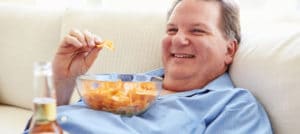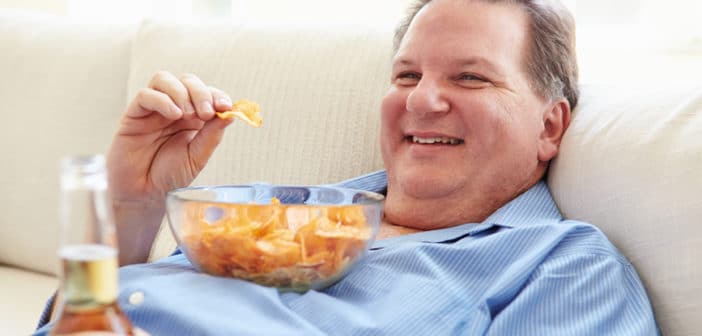 Being an alcoholic sucks. Whether you are in recovery or not, there are a host of challenges those who are powerless over booze have to face. These can range from “how do I not drink today?” to “when will I be able to drink today?” Being under the thumb of addiction can feel like living beneath an anvil. Being broke can feel the same (I should know, I have been both). Ironically, these two desperate states can sometimes feed each other and create one hardcore shitty existence. Which is why a recent piece in the Independent about how alcoholism is more prevalent amongst poor people didn’t surprise me at all. It depressed the hell out of me, but made perfect sense.
Being an alcoholic sucks. Whether you are in recovery or not, there are a host of challenges those who are powerless over booze have to face. These can range from “how do I not drink today?” to “when will I be able to drink today?” Being under the thumb of addiction can feel like living beneath an anvil. Being broke can feel the same (I should know, I have been both). Ironically, these two desperate states can sometimes feed each other and create one hardcore shitty existence. Which is why a recent piece in the Independent about how alcoholism is more prevalent amongst poor people didn’t surprise me at all. It depressed the hell out of me, but made perfect sense.
More Money Less Problems
As if being shackled by socio-economic limitations isn’t bad enough, a study conducted by the BMJ showed that residents of the UK who are in a higher income bracket actually tend to drink less, though more frequently, than the average Joe. So while the white collars are enjoying a scotch and water or two every night, those who are barely making ends meet reportedly save it up for the weekend and knock back their 14 plus cocktails in the span of three nights (Friday, Saturday and Sunday).
Unfortunately, while drinks consumed per week may be nearly the same, moderate daily drinkers don’t even come close to weekend warriors when it comes to alcohol-related accidents, emergencies and long-term health problems. So not only do wealthy people make more money but they cost the government much less and tend to be less afflicted with alcoholism. Talk about kicking a bloke when they’re down!
I don’t think it takes a sober brain surgeon (the best kind) to deduce the connection between being broke and being drunk. Dr. Lisa McKenzie, author of Getting By, points out that people who are struggling to make ends meet are in hardship and no one wants to live in hardship without some comfort. This could be anything from binge drinking to online shopping; it’s about finding some pleasure in lives that are otherwise depressing.
To Each His Own Bottom
In 12-step programs, you will often hear people talk about their “bottom.” These tales of woe can range from drunkenly calling your boss a pervert at the company holiday party to waking up from a blackout nursing a child you don’t remember having. The point is, one person’s final straw may just be a typical day for someone else. And while the rich are not in any way immune to alcoholism, and not being able to pay your bills is not synonymous with addiction, it’s no coincidence that homeless people don’t typically drink in moderation—I mean, what would be the point?
Well, those of us who are in recovery know the answer to that question. The point is to get sober long enough to get off the streets and put your life together. With a roof over your head and a job to show up to, suddenly life ain’t so bad. There is hope for the future. The same principle goes for the financially strapped. They might have a place to live and a job but they need to see possibilities of upward mobility in their lives in order to feel hopeful and happy. If they don’t, they often turn to booze, drugs or other vices to feel joy. Ironically, these small pleasures often become big problems, or at best, anchors to keep them right where they are.
A Look at the Bigger Picture
On the surface, the solution appears to be offering more resources for treatment and recovery to those who need it but can’t afford it. However, I would argue that this is merely a band-aid to a larger problem that must be addressed if there is any hope of change—the economy. People can certainly make their own choices to take on low wage jobs or financial obligations they can’t handle, or both. However, if the UK is anything like America, the majority of jobs don’t pay enough to make ends meet, even without kids or an extravagant lifestyle. This includes positions that require a college or even graduate degree, yet don’t offer salaries that allow people to pay off their college loans. Even doctors and lawyers aren’t immune. And you can forget about teachers! Most of them barely make more that a barista at Starbucks.
Since I am about the furthest thing from an economist, I can’t speculate on what steps we need to take to fix the growing disparity between rich and poor. All I can tell you is that we need to take them.
Sponsored DISCLAIMER: This is a paid advertisement for California Behavioral Health, LLC, a CA licensed substance abuse treatment provider and not a service provided by The Fix. Calls to this number are answered by CBH, free and without obligation to the consumer. No one who answers the call receives a fee based upon the consumer’s choice to enter treatment. For additional info on other treatment providers and options visit www.samhsa.gov.




